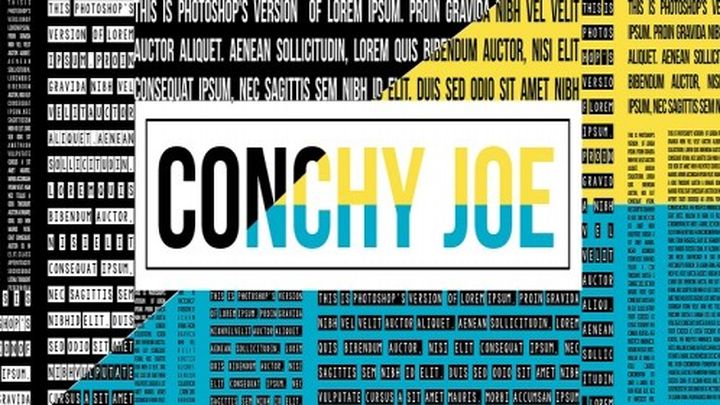
CONCHY JOE
Donation protected
I have been accepted/curated into a major Bahamian show titled: Antillean: an Ecology.
Antillean: an Ecology will look towards citizenship, migration, the landscape, collective traumas, slavery, Indentureship, trade and racial delineations, things that have shaped our identities. It will consider the imagination, memory, language and mythologies and how they offer a critical space to intersect with stereotypes that are deeply ingrained in our social fabric about personal and public personas.
The National Art Gallery of the Bahamas will host its National Exhibition #7 Antillean: an Ecology, which will be on view from December 11th, 2014- April 30th, 2015.
Antillean: an Ecology is co-curated by Michael Edwards and Holly Bynoe. Edwards received a BFA from the Rhode Island School of Design in 2000, and a Master of Science in Art and Technology from Chalmers University of Technology, Gothenburg, Sweden in 2006. Presently, he is a lecturer in the School of Communication and Creative Arts at The College of The Bahamas.
Bynoe is a visual artist, curator and writer from St. Vincent and the Grenadines, and is currently living and working across the Caribbean. She is the co-founder and director of ARC Magazine, the premiere visual art and culture publication focusing on contemporary visual art created throughout the Caribbean and its diaspora.
Installation Proposal PART I: This is a two-part installation. First, a painting composed of (6) 30’’X24’’ 2’’ deep panels that can be deconstructed for travel and reconstructed for installation. Second is the decoupaged wall text that directly corresponds with the painting.
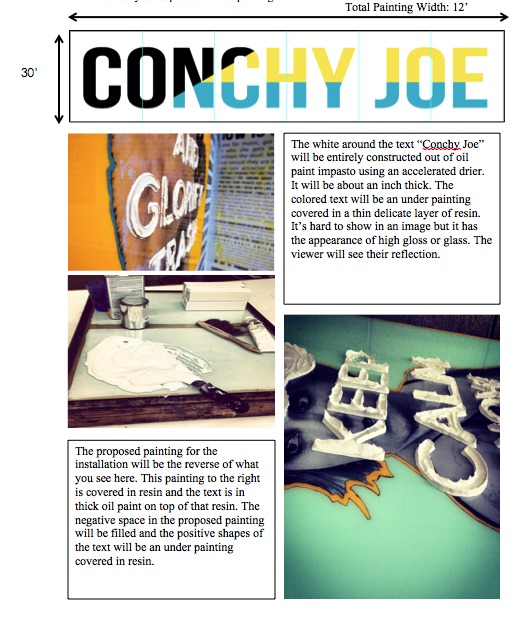
Installation Proposal PART II: The second part will consist of decoupaged engineer prints. These will be printed and rolled to travel. There will be (6) scrolls measuring 32’’X 146.24’’.
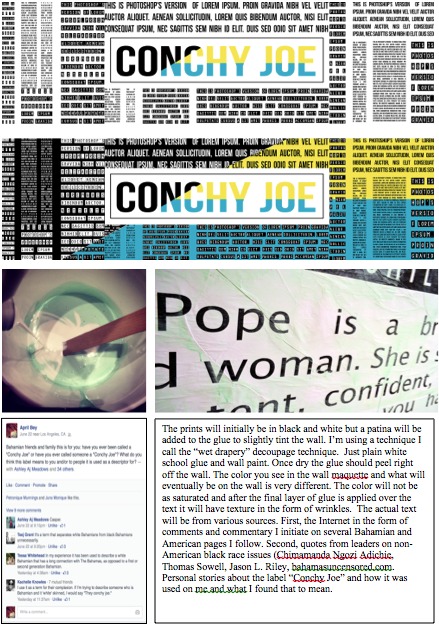

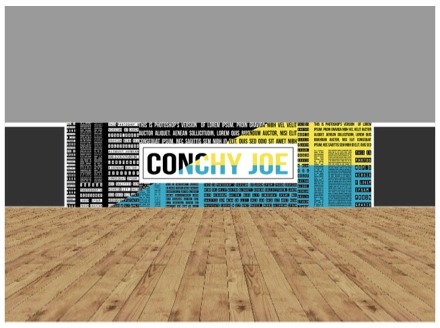
Installation Intent: Taking a look at this label “Conchy Joe,” the specificity on race is in the name; the most treasured meat source of the Bahamas is a mollusk (conch) with seductively white flesh.
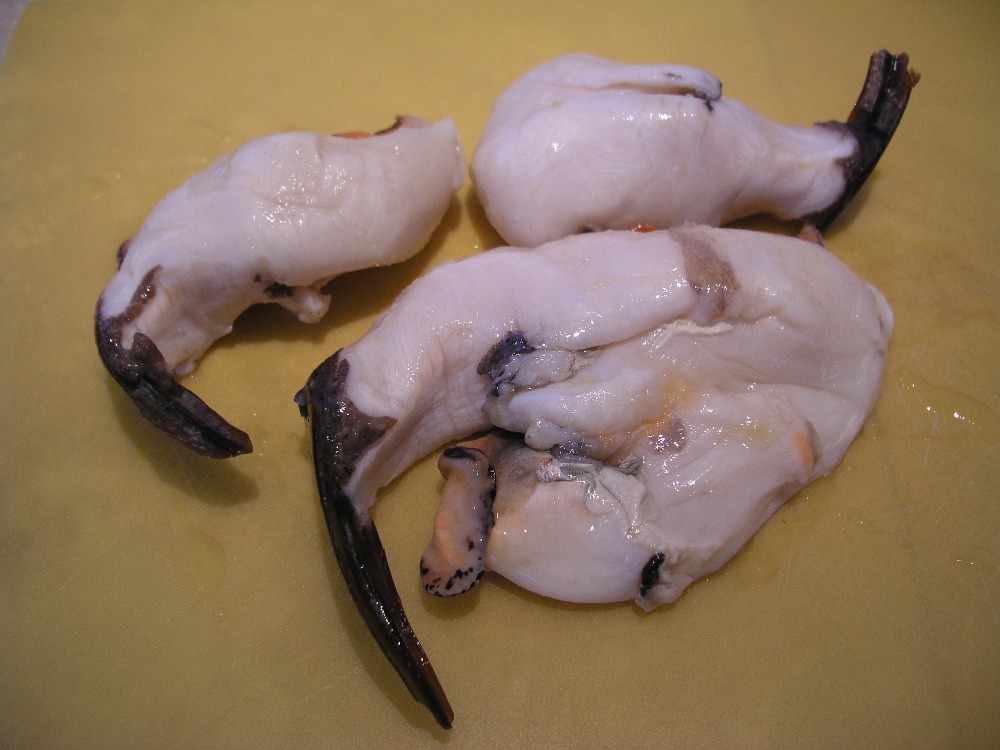
White historically has prestige; the master was white, the privileged are white, the house slave had lighter skin, luxurious foods not found in nature are white. There is a seductive dance between the sinister and the sweet in regards to this color (or lack of color) that makes the user of this label both resent and envy the subject they’re labeling. The thick creamy white impasto that forms around the text lends to this sweet and sour label. The colors of the Bahamas are very important to use in this installation. The “black” is purposefully for the people of the Bahamas who according to Bahamian’s own government are “black”. Independence handed down from the British culturally reported to be dictated by the people but factually still very much influenced by the country’s monarch. With growing technology in the Bahamas, the conversation is online, in forums and posted as comments. Protests for teacher’s rights, crime prevention and government opposition are being waged and organized online. American-Bahamian and Bahamian Millennials are returning to the island to act as catalysts for cultural and eventually political change. But with this technological innovation spreading and affecting every country, the trashier part of culture, like the perpetuation of slave culture, is carried across borders in the speed it takes to hit the “submit” button.
Final Thoughts: I’ll end with this: “The only reason you say that race was not an issue is because you wish it was not. We all wish it was not. But it’s a lie. I came from a country where race was not an issue; I did not think of myself as black and I only became black when I came to America. When you are black in America and you fall in love with a white person, race doesn’t matter when you’re alone together because it’s just you and your love. But the minute you step outside, race matters. But we don’t talk about it. We don’t even tell our white partners the small things that piss us off and the things we wish they understood better, because we’re worried they will say we’re overreacting, or we’re being too sensitive. And we don’t want them to say, Look how far we’ve come, just forty years ago it would have been illegal for us to even be a couple blah blah blah, because you know what we’re thinking when they say that? We’re thinking why the fuck should it ever have been illegal anyway? But we don’t say any of this stuff. We let it pile up inside our heads and when we come to nice liberal dinners like this, we say that race doesn’t matter because that’s what we’re supposed to say, to keep our nice liberal friends comfortable. It’s true. I speak from experience.” ― Chimamanda Ngozi Adichie, Americanah
Having grown up in the Bahamas being both biracial and bicultural being black wasn’t an identity of mine until I moved back to the United States. In the Bahamas there are black Bahamians and “other”. Bahamian culture dictates that a true Bahamian is aesthetically black completely circumventing a history rich in Colonial slavery and incidences of rape. Growing up, anyone other than “Bahamian Black” was a “Conchy Joe”. So, despite the fact that my father was an American black, Caribbean blacks referred to me as “other” in this case a “Conchy Joe” simply because the pigment in my skin wasn’t as heavily concentrated. As a child this confused me and made me question what it truly meant to be a Bahamian and to be black. Growing up this label was either used against me or as a descriptor for my family and me. It singled me out and created an obvious barrier that I think my generation currently finds irrelevant. In America our black celebrities glamorize ghetto culture, another form of slave culture. The fact often overlooked in regards to slavery is that not all slavery stems from racism but it does entirely stem from one group having power over another. Degrading terms and labels to force one group into submission to another is the first step in maintaining power. With dying paradigms and ancient rhetoric the origins to any black-centric country always stems from slavery and an aversion to the master race who enslaved. In rejecting this history we have adopted the tongue of “Massa”. A continuation of these labels that differentiate us in physical appearance thus demeaning one group over another is a seriously depressing acceptance of slave culture; a culture we ourselves are perpetuating.
Please help me create this important work.
Antillean: an Ecology will look towards citizenship, migration, the landscape, collective traumas, slavery, Indentureship, trade and racial delineations, things that have shaped our identities. It will consider the imagination, memory, language and mythologies and how they offer a critical space to intersect with stereotypes that are deeply ingrained in our social fabric about personal and public personas.
The National Art Gallery of the Bahamas will host its National Exhibition #7 Antillean: an Ecology, which will be on view from December 11th, 2014- April 30th, 2015.
Antillean: an Ecology is co-curated by Michael Edwards and Holly Bynoe. Edwards received a BFA from the Rhode Island School of Design in 2000, and a Master of Science in Art and Technology from Chalmers University of Technology, Gothenburg, Sweden in 2006. Presently, he is a lecturer in the School of Communication and Creative Arts at The College of The Bahamas.
Bynoe is a visual artist, curator and writer from St. Vincent and the Grenadines, and is currently living and working across the Caribbean. She is the co-founder and director of ARC Magazine, the premiere visual art and culture publication focusing on contemporary visual art created throughout the Caribbean and its diaspora.
Installation Proposal PART I: This is a two-part installation. First, a painting composed of (6) 30’’X24’’ 2’’ deep panels that can be deconstructed for travel and reconstructed for installation. Second is the decoupaged wall text that directly corresponds with the painting.

Installation Proposal PART II: The second part will consist of decoupaged engineer prints. These will be printed and rolled to travel. There will be (6) scrolls measuring 32’’X 146.24’’.



Installation Intent: Taking a look at this label “Conchy Joe,” the specificity on race is in the name; the most treasured meat source of the Bahamas is a mollusk (conch) with seductively white flesh.

White historically has prestige; the master was white, the privileged are white, the house slave had lighter skin, luxurious foods not found in nature are white. There is a seductive dance between the sinister and the sweet in regards to this color (or lack of color) that makes the user of this label both resent and envy the subject they’re labeling. The thick creamy white impasto that forms around the text lends to this sweet and sour label. The colors of the Bahamas are very important to use in this installation. The “black” is purposefully for the people of the Bahamas who according to Bahamian’s own government are “black”. Independence handed down from the British culturally reported to be dictated by the people but factually still very much influenced by the country’s monarch. With growing technology in the Bahamas, the conversation is online, in forums and posted as comments. Protests for teacher’s rights, crime prevention and government opposition are being waged and organized online. American-Bahamian and Bahamian Millennials are returning to the island to act as catalysts for cultural and eventually political change. But with this technological innovation spreading and affecting every country, the trashier part of culture, like the perpetuation of slave culture, is carried across borders in the speed it takes to hit the “submit” button.
Final Thoughts: I’ll end with this: “The only reason you say that race was not an issue is because you wish it was not. We all wish it was not. But it’s a lie. I came from a country where race was not an issue; I did not think of myself as black and I only became black when I came to America. When you are black in America and you fall in love with a white person, race doesn’t matter when you’re alone together because it’s just you and your love. But the minute you step outside, race matters. But we don’t talk about it. We don’t even tell our white partners the small things that piss us off and the things we wish they understood better, because we’re worried they will say we’re overreacting, or we’re being too sensitive. And we don’t want them to say, Look how far we’ve come, just forty years ago it would have been illegal for us to even be a couple blah blah blah, because you know what we’re thinking when they say that? We’re thinking why the fuck should it ever have been illegal anyway? But we don’t say any of this stuff. We let it pile up inside our heads and when we come to nice liberal dinners like this, we say that race doesn’t matter because that’s what we’re supposed to say, to keep our nice liberal friends comfortable. It’s true. I speak from experience.” ― Chimamanda Ngozi Adichie, Americanah
Having grown up in the Bahamas being both biracial and bicultural being black wasn’t an identity of mine until I moved back to the United States. In the Bahamas there are black Bahamians and “other”. Bahamian culture dictates that a true Bahamian is aesthetically black completely circumventing a history rich in Colonial slavery and incidences of rape. Growing up, anyone other than “Bahamian Black” was a “Conchy Joe”. So, despite the fact that my father was an American black, Caribbean blacks referred to me as “other” in this case a “Conchy Joe” simply because the pigment in my skin wasn’t as heavily concentrated. As a child this confused me and made me question what it truly meant to be a Bahamian and to be black. Growing up this label was either used against me or as a descriptor for my family and me. It singled me out and created an obvious barrier that I think my generation currently finds irrelevant. In America our black celebrities glamorize ghetto culture, another form of slave culture. The fact often overlooked in regards to slavery is that not all slavery stems from racism but it does entirely stem from one group having power over another. Degrading terms and labels to force one group into submission to another is the first step in maintaining power. With dying paradigms and ancient rhetoric the origins to any black-centric country always stems from slavery and an aversion to the master race who enslaved. In rejecting this history we have adopted the tongue of “Massa”. A continuation of these labels that differentiate us in physical appearance thus demeaning one group over another is a seriously depressing acceptance of slave culture; a culture we ourselves are perpetuating.
Please help me create this important work.
Organizer
April Bey
Organizer
Inglewood, CA